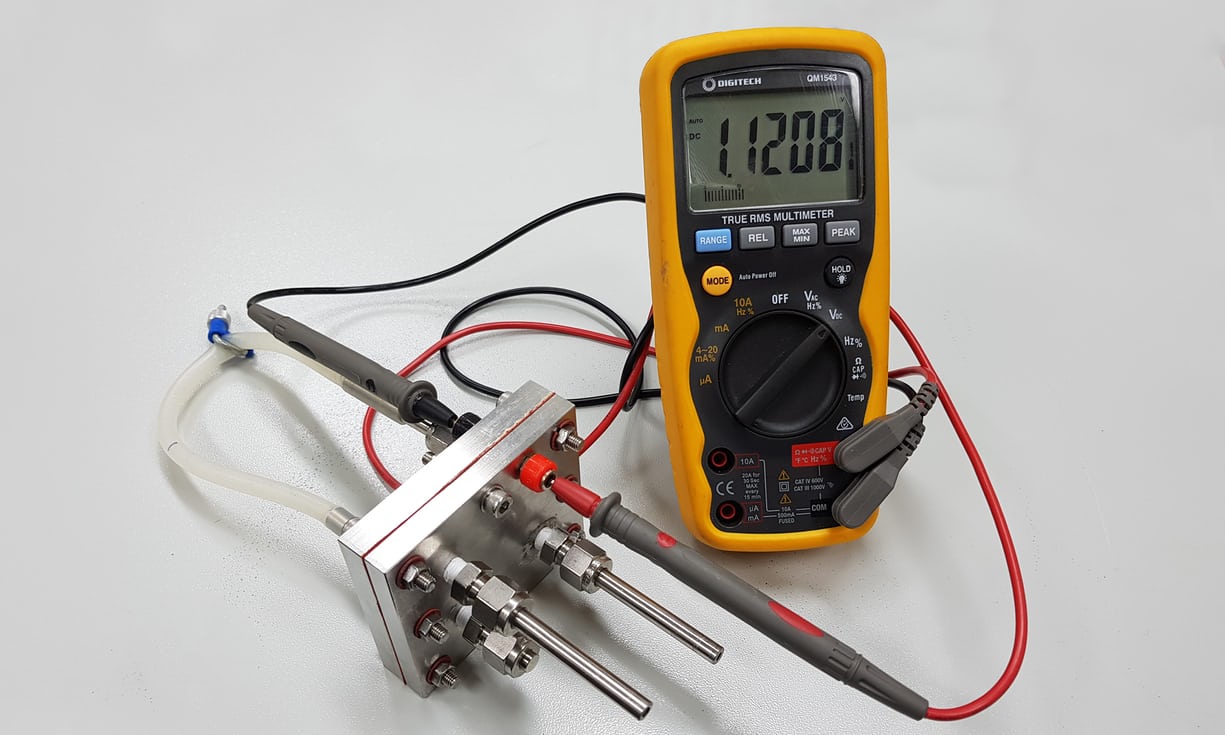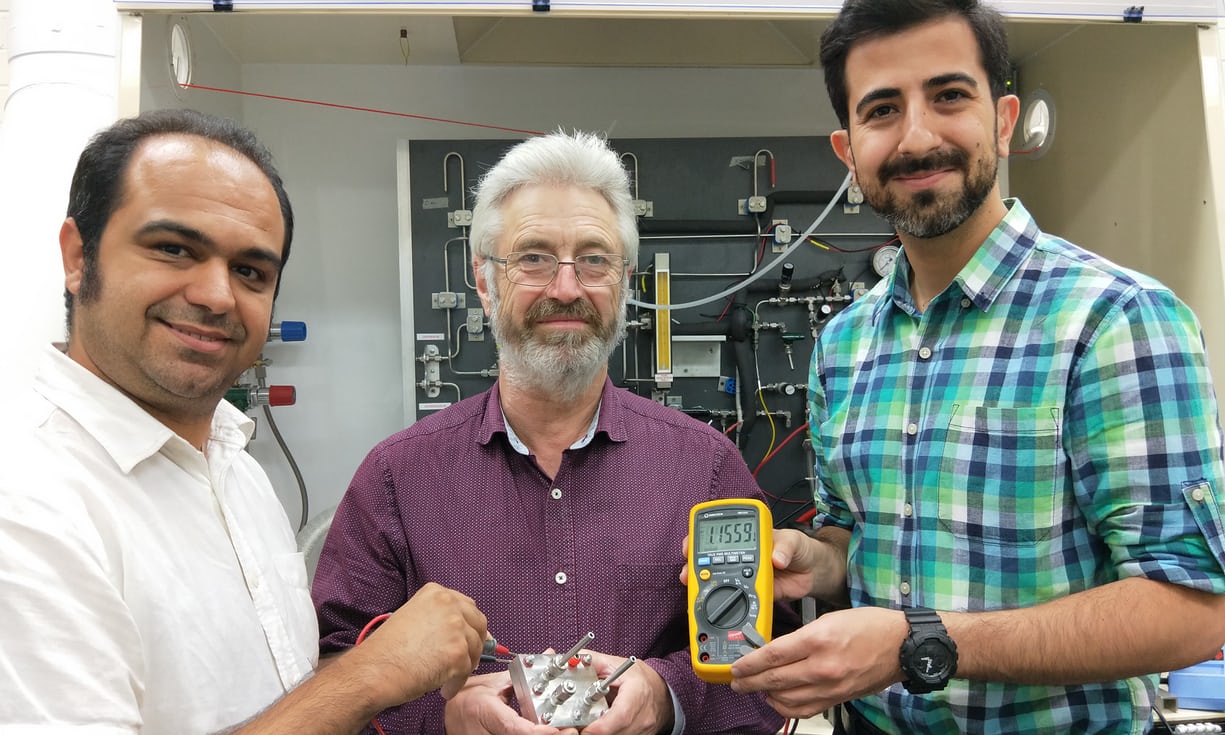Researchers at RMIT University in Melbourne have created the world's first rechargeable proton battery that uses carbon and water instead of lithium, a relatively scarce and expensive resource.
As Engadget explains, the battery is essentially a hybrid between a hydrogen fuel cell and a chemical battery. When charging, water is split to produce protons which are then passed through a cell membrane and bond to carbon electrodes. Critically, this is done without producing hydrogen gas.
When it comes time to use the stored energy, hydrogen atoms are released and shed an electron to re-form protons. The electrons supply the power and the hydrogen protons combine with oxygen and other electrons to reform into water.

Again, the fact that the battery doesn't produce hydrogen gas is key. Traditional fuel cells must produce hydrogen gas then split it back into protons, a process that reduces efficiency. Because the proton battery doesn't produce hydrogen gas, it's far more efficient. Even as-is without optimizations, it is on par with lithium-ion batteries in terms of efficiency.
Professor John Andrews, lead researcher on the project, said it could be commercially available within five to 10 years. At that time, it could be an ideal solution for at-home Powerwall-type storage or even as a backup to solar panels or windmills.
It's promising, sure, but we've been fed the promise of revolutionary battery technology time and again with diminishing returns. Surely, at some point, one of them has to be commercially viable, right?
